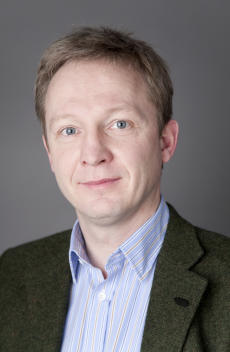“Politics and courts need moral compass from us”
In the corona crisis, legal scholar Nils Jansen warns against leaving politics, courts and science to shape our basic normative orientation – medical ethics, rent and travel reimbursement: legal situation is often not as clear-cut as many may believe – “We need a set of common rules and beliefs outside legal norms”
Press release of April 8, 2020

According to the legal scholar Nils Jansen, the moral questions raised by the corona crisis should not be left to politics, the courts and science alone. Rather, argues Jansen, Speaker of the University of Münster’s Cluster of Excellence “Religion and Politics”, society – “and this means us” – needs a common moral orientation, even if the struggle for such an orientation has become unpopular. Neither governments nor courts can manage in the long run “without the compass of public morality”. Whether it is the pressing medical-ethical questions in the clinics, the rents paid by retailers, the bankruptcy that businesses in shutdown face, the lack of workers for the harvest season, or the reimbursement for holidays and cultural events – the legal situation is not as clear-cut as many may believe. In the pandemic, we therefore need answers to the normative question of “what consideration we owe each other, how far we must accept painful restrictions in consideration of the welfare of others”. What is missing here is “a compass: a reasonably coherent set of common rules and beliefs outside legal norms and medical instructions. Because such questions have up to now – for example, in the climate debate – been largely suppressed”.
Nor does it help to leave the big questions of the crisis to science alone, continues Jansen in his article “Corona and public morality” on the Cluster of Excellence’s website, www.religion-und-politik.de. Rather, the debates currently taking place, for example, in medicine, law and economics are strongly following the internal rationalities of the respective discipline. “A society has to orient itself between these rationalities and find overarching standards. It is not only in the hospital that life and death are decided”. As an example, Jansen raises the question of why it is that different standards are applied in the corona crisis than in the case of air pollution, which, according to the World Health Organization, has also caused thousands of deaths. While the death of a person infected with corona is attributed to the virus, nobody talks about particulate matter or the ozone in the case of death from respiratory or cardiac diseases caused by environmental pollution. “This is irrational; the causalities are constructed in the one case as well as in the other. Can an enlightened society accept that descriptions of causality and habituation effects control its moral values and actions in such a fundamental way?”

Nils Jansen explains that the legal situation is unclear in many of the questions raised by the corona crisis, and points to the example of retailers who are asking the state to pay their shop rents. “We assume that contracts are in force no matter what. But many react with indignation when companies like Adidas want to stop paying rent”. Yet, it is not at all clear whether shop owners can demand the full rent if the shops have to close. Until the 19th century, the opposite was taken for granted. Even today, Section 313 of the German Civil Code (BGB) gives the tenant the right to adjust the lease if “circumstances which became the basis of a contract have significantly changed”. Of course, says Jansen, this only applies to the extent that it is “reasonable”. “What is reasonable is a question of societal beliefs, of who should bear which risks and show consideration. Courts could apply such norms better if society had a compass here”.
The same problems have arisen with ballet schools, opera tickets and prepaid holidays, Jansen explains. “Who really benefits when cancelled performances and lessons are reimbursed? Wouldn’t it be nice if there were still opera houses, ballet schools and hotels next year? Perhaps we should encourage each other to waive the right to a refund”.
“Little has been heard from the churches”
For Nils Jansen, society should not simply hope that, if it leaves the moral management of such challenges to the government and its experts, then “things will turn out reasonably well”. This will not happen without a broad societal understanding of the situation. Nor does the “secular faith of our religions” provide an orientation. “Church fathers and mothers also no longer believe that masses, prayer processions and common Friday prayers can help. The efforts would have multiplied in the past”. According to Jansen, little has been heard from the churches, although there would be something to say about what charity might mean when social distance is the order of the day. “In contrast, the political sphere was quick to act. People fear apocalyptic situations and therefore follow the recommendations of virologists and experts in infectious diseases”. (vvm)

